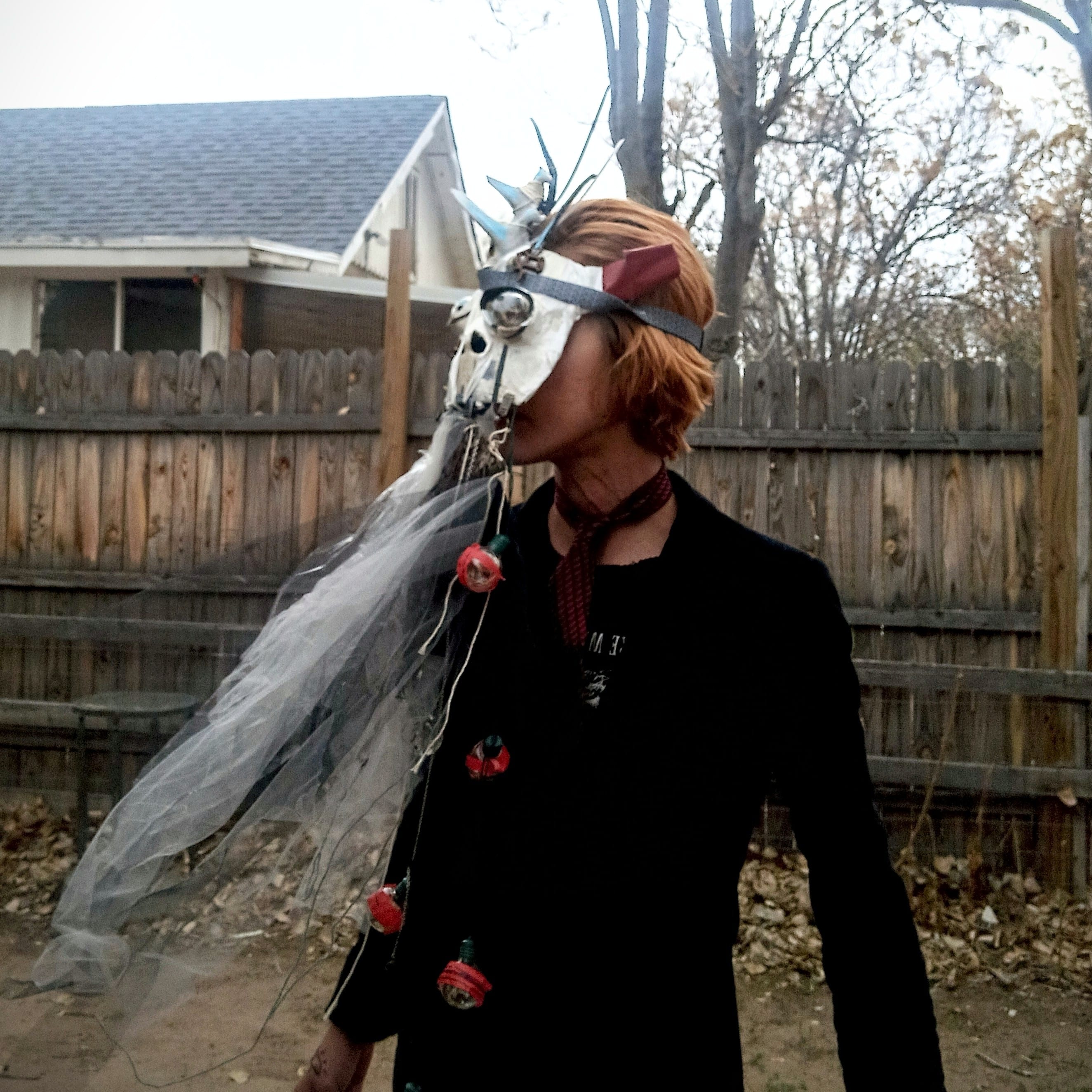The natural world is rife with much richer analogies than our “higher” cultured structures. We have been strategically separated from the knowledge that mushrooms are awesome. They are resilient, adaptive, adept at divvying up decomposition, and taxonomically distinguished amongst the many types. Consider three examples: 1.) Mushrooms that grow on New England Yule logs (morels, oysters, lion’s mane) are iconic, delicious, and indispensable to the ecosystem. 2.) Cryptococcus neoformans fungi are doing a different alchemical work: metabolizing radiation thirty-eight years after the man-made nuclear catastrophe in Chernobyl. 3.) Deep in tropical forests, a spore called Ophiocordyceps unilateralis (zombie-ant fungus) infects ants’ brains to alter their behavior. The fungus drives an ant to the top of a hill, where there is sunlight that the fungus can’t otherwise reach. It then releases spores for reproduction via the ant’s exploded head. (Plus thousands of examples of fungi soldiers in between!) Yet even in the natural world, parasite populations sometimes get out of balance.
Trauma is everywhere; the more humans there are on the planet, the more trauma there will be. A vast majority of us are living in a triggered state, and only some of us admit it. We also foster minds that can navigate the nuances necessitated by spectrums, strengthening our non-black-and-white thinking in an exponentially complex world. We are tending to those historically kept out of conversations or that need triage because of an immutable past. Institutional sanction may “seem like a trivial issue to some,” but although I didn’t have a say in the need for triage, my privileged access to narc abuse research was undeniable. I accessed it via sanctioned definitions plus survivor’s accounts.
Defending the farthest ends of imposed destruction is essential. In the mid-20th century, the philosopher Jacques Derrida watched his non-binary deconstructionism weaponized by Holocaust deniers. It was a quick adaptation, one which he himself waded in. Comparisons aren’t logical in trauma-informed arenas; we cannot let it turn into an Olympic sport. First-person accounts are invaluable; they are tools against didactics. If “power over” is the enemy, let it burn. We will benefit from listening to those who have been to the far side: they embody a cipher, attuned to the most damaging collective dynamics.
I would never claim to know the trauma of someone chained in a basement for a decade. To an analogous but empirically lesser degree, it was maddening to hear people say they were “triggered” by things for which they have distaste or “gaslit” by someone who disagreed with them once. During the last chapter and harrowing afterlife of my NPD narcissist, my evenings resembled an Apocalypse Now hotel stay. The mechanisms found when local labor is coerced into performing its own resource extraction are not far off from what drives domestic violence, but it is not the same as the discomfort caused by calling someone out on their bullshit. All of these can be covert, blatant, or have spectacle. It is up to us to navigate the shades in between.
You can’t gaslight someone once or accidentally; it is a method, a grooming process. It is based on a pattern, and keeping a log of this pattern before throwing the word around would serve us all well. Trauma bonding isn’t what occurs when two people become friends by sharing accounts of their trauma, however true and deserving of recognition (think: Stockholm’s Syndrome). You don’t have PTSD from stressful experiences; you have PTS. Love-bombing isn’t over-zealous, misguided courtship, though the pattern of suspicion by its recipients is illuminating. The idealization phase isn’t a “honeymoon period” (think objectification). And the lyrical, colloquial usage of the word narcissist doesn’t do justice to the factions of survivors clamoring to get well in an environment made of this stuff.
It was a year into my recovery from acute NPD abuse before I found therapeutic environments where I could use the word sociopath, which was the accurate word. A year to find spaces where clinicians heard me say: “I’m not sick, I’m injured.” There is growing research that NPD abuse causes literal brain damage, cognitive severance based on coercive depersonalization, inflammation, increased cortisol and adrenaline, and a weakened immune system. Anecdotally, every hellish microsecond of my burning nervous system concurs. Without this patient narrative, my doctors were mistreating me for an inaccurate condition.
By then, I was regularly calling suicide hotlines because my support system was exhausted or my abuser had triangulated them. I cut ties with the rest because of their unnuanced judgments. My tolerance was at an all-time low, and I was realizing similar traits in the people with whom I surrounded myself: they were used to me allowing this behavior, too.
For a while, knowing narcissism is prevalent and underreported, I tried to stay with people’s best commiserative offerings. I believe in this practice of respectful witness but, exhausted from fighting for validation (mine and precedence), my stripped psyche has retreated. I will return. These days, I hold a policy that I won’t discuss “narcissism” with anyone who hasn’t done basic research into the condition.
I spent a year navigating significant neurological and physical dysfunctions like sequential reasoning, short-term memory, debilitating fatigue, loss of coordination, vision impairment, constant pain and inflammation, sleep disruption, and seizures. My community insisted that eating well, stretching, and forgiveness meditations would help me feel better. I am absolutely not knocking the first two; recovering from narc abuse has taken more physical stamina than I knew I had. But because of the underestimation from all outward appearances, being asked to take better care of myself at that early stage was like asking someone to perform their own appendectomy. I was then criticized for not doing it quietly enough.
I still defend against forced premature forgiveness, though. Insistence on it is dismissive and minimizing. I’m grateful to now be in companies that don’t see it as a prerequisite for my recovery and acknowledge that it may never be possible. I don’t yet talk to many people from “the before times” because the level of sociopathic abuse I experienced is not well-represented by the public’s definition of narcissism. Few aspects of my life that are unscathed by it, about which I can chit-chat. I appreciated the sentiment to take better care of myself and extended grace to their confusion. But thinking positively was not going to cut it. So, I fought my way through.
Recovery coaches recommend not defending yourself to conserve energy. Paradoxically, however, I couldn’t get the treatment I needed without defending the gravity of the situation. I spent taxing amounts of energy defending myself against “breakups are hard” rhetoric. (Several times, my abuser manipulated my closest friends into relaying this message to me. Hearing his echo through them was spooky, but it taught me much about them. I was then ostracized for this accurate paranoia.) I’m not saying the outlandish reactions that followed were justified (I was as surprised as anybody by them) or that the lack of narc abuse awareness caused them, but it made me significantly lonelier, angrier, and gaslit by proxy. I spent a year putting out some fires and stoking others — because my dangerously empathetic heart sees how this isn’t just about me or my ex — before getting to the actual work. The delay was (partly) due to a lack of shared vocabulary.
Part 3 will be published on Wednesday, 9/25/24
Guest Post Disclaimer: Any and all information shared in this guest blog post is intended for educational and informational purposes only. Nothing in this blog post, nor any content on CPTSDfoundation.org, is a supplement for or supersedes the relationship and direction of your medical or mental health providers. Thoughts, ideas, or opinions expressed by the writer of this guest blog post do not necessarily reflect those of CPTSD Foundation. For more information, see our Privacy Policy and Full Disclaimer.

Bonni Benton is a multimedia artist and student. She has a BA in Theatre from Hunter College (CUNY) and will hold an MA in Comparative Literature and Cultural Studies from UNM at the end of this year. She put her roots back down in her home state of New Mexico in 2020, where she and her two rabbits currently live in a tiny house in the mountains.




